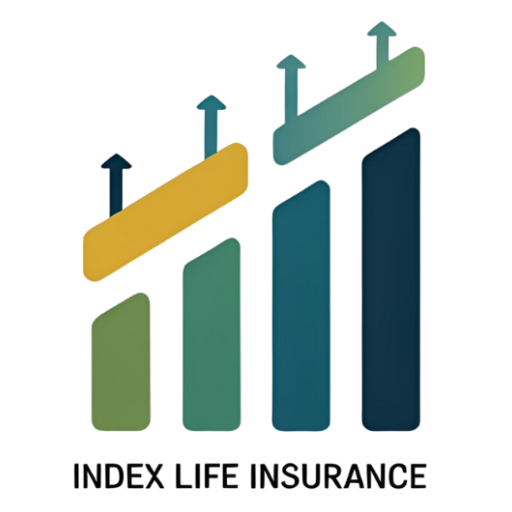When purchasing an insurance policy—whether it’s health, life, or a more advanced financial vehicle like Index Universal Life (IUL)—selecting the right insurance company is just as important as choosing the policy itself. While coverage terms and premium costs are vital, the company behind the contract plays a key role in claim reliability, customer service, financial strength, and long-term policy performance.
This article dives into what sets top insurance companies apart, how to evaluate them beyond price quotes, and how their stability and service can directly impact your IUL policy’s success or failure.
What Is an Insurance Company?
An insurance company, or insurer, is a financial institution that underwrites risk and issues policies in exchange for premium payments. The company agrees to pay claims or benefits according to the terms of the policy, whether it involves life insurance, property protection, health coverage, or retirement income strategies like IULs.
Types of Insurance Companies
Not all insurance companies are created equal. Understanding their structure can influence your experience as a policyholder:
- Mutual Insurance Companies: Owned by policyholders and may return profits as dividends (common in whole life and IUL products).
- Stock Insurance Companies: Owned by shareholders and focused on profitability; may offer competitive products but fewer dividend options.
- Direct Writers: Sell policies through their own agents (e.g., Northwestern Mutual, State Farm).
- Reinsurers: Insure other insurance companies—important for high-limit or specialized policies like jumbo IULs.
How Insurance Companies Differ in IUL Policy Performance
When it comes to Index Universal Life insurance, the insurance company you choose can dramatically affect your policy’s growth and sustainability. Here’s how:
- Cap and Floor Rates: Each company sets its own caps (max interest credited) and floors (minimum credited, often 0%). A 1% cap difference over 30 years is massive.
- Cost of Insurance (COI): Internal charges vary by company and impact how much of your premium goes toward cash value.
- Policy Loan Options: Some companies offer participating loans that allow continued index growth while borrowing—others don’t.
- Rider Availability: Chronic illness, overloan protection, and long-term care riders vary by carrier.
- Financial Ratings: A-rated companies tend to honor long-term guarantees and resist unexpected fee hikes.
What to Look for in an Insurance Company
To evaluate insurers—especially for long-term policies like IUL—look beyond the initial quote and marketing brochures. Consider:
- Financial Strength Ratings: Check A.M. Best, Moody’s, S&P, and Fitch ratings. Aim for A- or higher.
- Claims Payout History: Research how reliably the company pays claims and how fast they resolve them.
- Longevity in the Market: Choose companies with decades of experience managing long-term contracts.
- Policy Flexibility: Do they allow death benefit increases, premium changes, or rider additions?
- Advisor Network: Some insurers only work through experienced advisors—this adds a layer of quality control.
Top-Rated Insurance Companies Offering IUL Policies (As of 2025)
Here are several companies widely recognized for offering competitive and reputable IUL products (note: this is not financial advice):
- Pacific Life: Strong IUL illustrations and highly rated financials
- Lincoln Financial Group: Known for flexible design and loan features
- Protective Life: Offers cost-effective IUL products with conservative designs
- Nationwide: Often praised for policyholder service and indexed crediting transparency
- North American Company: Strong historical cap rates and rider availability
Each company has unique underwriting niches, strengths, and service models. Work with a licensed advisor to determine which aligns with your goals and health profile.
Red Flags When Choosing an Insurance Company
Not all insurers are trustworthy. Be cautious of companies that exhibit these behaviors:
- ⚠️ Unlicensed or unregulated operations
- ⚠️ Too-good-to-be-true interest assumptions or illustrations
- ⚠️ Frequent changes in cap rates or policy terms
- ⚠️ Poor online reviews regarding claim processing or billing issues
- ⚠️ High internal charges buried in fine print
Transparency, stability, and service should outweigh flashy marketing or temporary cost savings.
Case Study: Same IUL, Different Outcomes
Two applicants, Sarah and Jacob, both 40 years old, purchase $500,000 IUL policies from different companies. Sarah’s insurer maintains a 10.5% cap and transparent policy reviews. Jacob’s insurer starts at 10% but lowers it to 7% within five years, dramatically affecting his cash value projections.
Despite similar inputs, Sarah’s policy outperforms Jacob’s by over $75,000 at year 20. This underscores why choosing the right company—not just the policy—is critical.
Questions to Ask Before Choosing a Company
Before you sign your policy, ask your agent or advisor:
- How long has this company offered IUL products?
- What’s their claims approval time frame?
- How stable have their cap rates and fees been over the last 10 years?
- Do they provide annual policyholder reviews?
- What are their policy loan terms and interest rates?
Your Insurance Company Is a Long-Term Partner
When buying insurance—especially a permanent policy like IUL—you’re not just buying protection. You’re entering a decades-long relationship with the insurer. Choosing the right insurance company ensures your premiums are well-managed, your claims are honored, and your financial strategy remains on track for generations to come.
Don’t shop by premium alone. Shop by stability, service, and long-term alignment with your life goals. Because in insurance, the company you keep matters as much as the coverage you choose.

